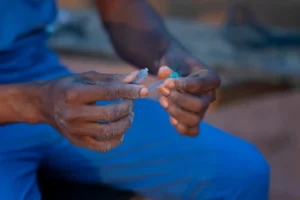For ALL Women and Girls: Rights. Equality. Empowerment.
On March 8, the world unites to celebrate International Women’s Day (IWD) 2025 under the theme: “For ALL Women and Girls: Rights. Equality. Empowerment.” This year’s theme is a powerful call to action, emphasizing the need forinclusivity and transformative change to ensure that no woman or girl is left behind.
The significance of this year’s celebration is further amplified by a historic milestone—the 30th anniversary of the Beijing Declaration and Platform for Action. Adopted in 1995, this blueprint for gender equality remains one of the most progressive global frameworks advocating for women’s rights. Over the past three decades, it has been instrumental in shaping policies, dismantling discriminatory barriers, and amplifying women’s voices across the world.
Where Do We Stand Today?
While progress has been made in advancing women’s rights, the journey toward full gender equality is far from over. Consider these key developments:
- In 1995, only 12 countries had legal sanctions against domestic violence. Today, 193 countries have introduced over 1,500 laws addressing gender-based violence, including 354 specifically targeting domestic violence.
- The number of countries with National Action Plans on Women, Peace, and Security has risen from 19 in 2010 to 112 today, strengthening efforts to protect women’s rights in conflict and peacebuilding.
- The past 30 years have also seen significant strides in youth engagement, particularly in empowering adolescent girls to become leaders in their communities.
Despite these achievements, challenges persist. Gender pay gaps, underrepresentation in leadership, and rising cases of gender-based violence continue to hinder progress. The COVID-19 pandemic, climate change, and global conflicts have exacerbated existing inequalities, making it clear that urgent and sustained action is needed.
Empowering the Next Generation
A central focus of this year’s IWD is investing in young women and girls as agents of change. From grassroots activism to corporate leadership, young women are challenging norms, driving innovation, and reshaping the future. Their role in climate justice, technology, education, and governance is crucial in building a sustainable and equitable world.
One inspiring example is Sandra Patricia Aguilar Carabalí, a young leader in Colombia who empowers women and youth to protect the environment and promote peace in conflict-affected areas. Her work reflects the broader global movement of young women advocating for justice and sustainability.
What Can We Do?
Every individual, organization, and government has a role to play in advancing gender equality. Here are ways to contribute:
- Support women-led initiatives: Advocate for policies that ensure women have equal access to education, healthcare, and economic opportunities.
- Engage in conversations: Share stories, amplify women’s voices, and use platforms like social media to challenge stereotypes and break biases. Use the hashtag #ForAllWomenAndGirls to spark dialogue.
- Invest in women’s leadership: Whether in politics, business, or social activism, supporting women in leadership roles drives systemic change.
- Hold leaders accountable: Encourage policymakers to prioritize gender equality in national and international agendas.
Looking Ahead: Beijing+30 and Beyond
As the world marks 30 years since the Beijing Declaration, we stand at a crossroads: continue pushing forward or risk reversing the gains made. The Commission on the Status of Women (CSW69), set to take place from March 10-21, 2025, will bring together global leaders to discuss challenges, progress, and the road ahead.
International Women’s Day is more than just a celebration—it’s a reminder that the fight for rights, equality, and empowerment must continue every single day. A future that uplifts ALL women and girls is a future that benefits everyone.



